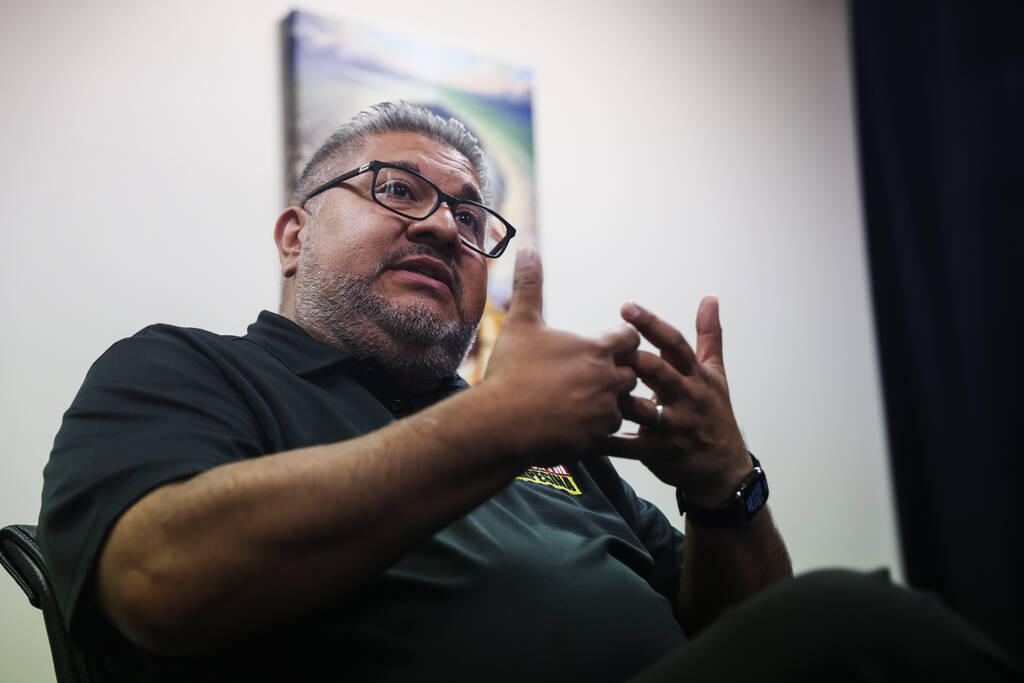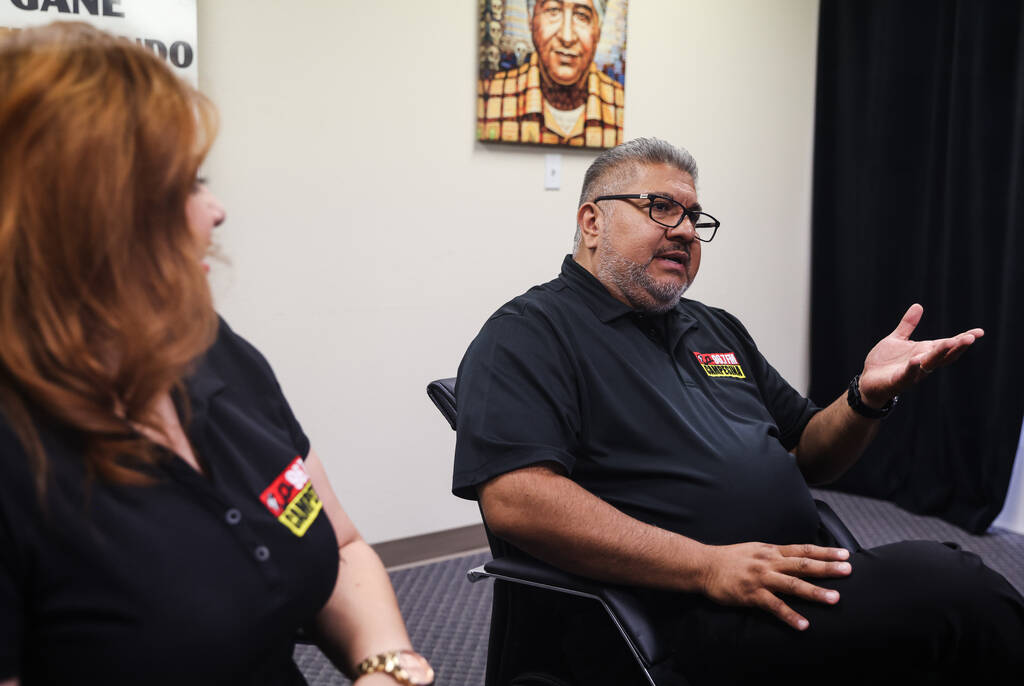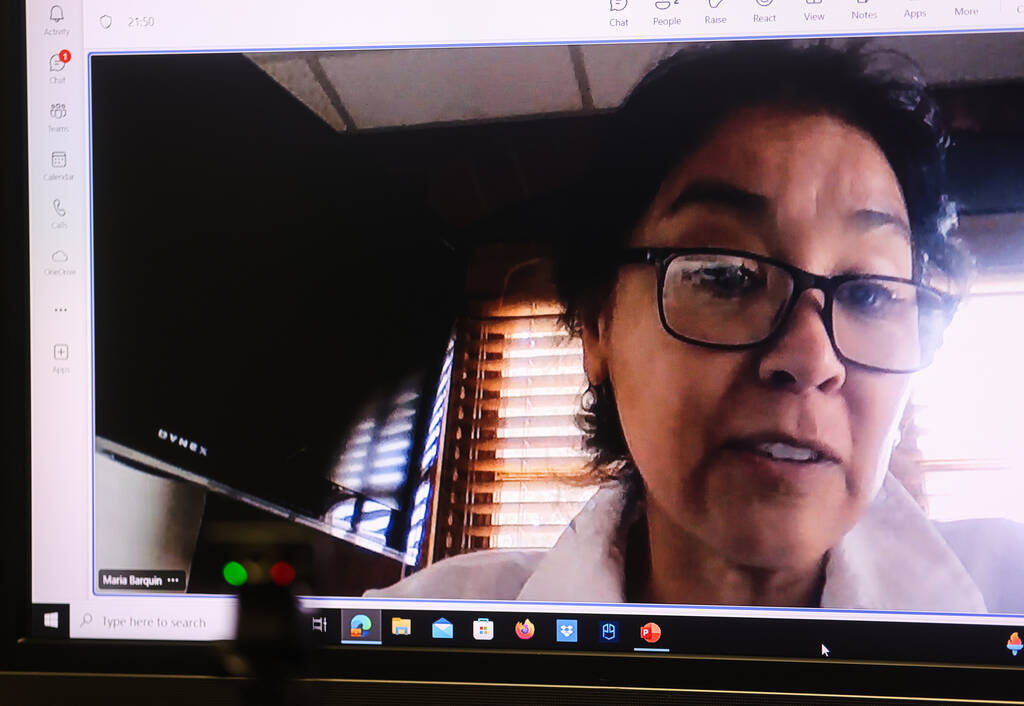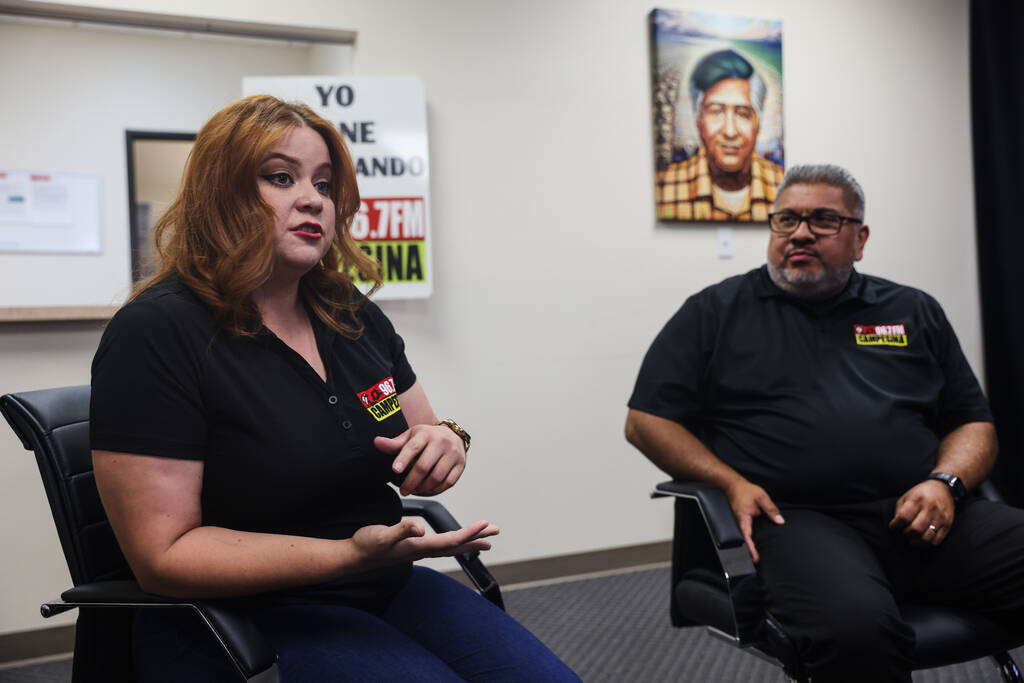‘New pandemic:’ Fact-checkers combating misinformation within Spanish-speaking electorate
Mexican-American broadcast journalist Jorge Ramos has been compared to Walter Cronkite, standing out as a long-trusted pillar of news for Spanish-speaking consumers.
So it may have come across odd to his viewers to see him pitching a nonexistent loan forgiveness program in one social media video and a program to provide government supported funeral costs in another.
It was him. It sort of sounded like him. But the pitches were out of character — and his lips didn’t quite match the words he was saying.
It was, in fact, phony. A so-called “deepfake” video. But by the time “Factchequeado” — a Spanish-language fact-checking website — worked to debunk the second deepfake video, it had already garnered more than 163,000 views on Facebook.
The viral spread of misinformation and disinformation has been well documented, and falsehoods shared in other languages are often not dissimilar, experts say. But as November looms, these experts are warning how fake news proliferates among Spanish-speaking voters in the U.S.
In a tight race in a battleground state like Nevada, Latino voters — who comprise 20 percent of overall voters — have the potential to swing elections.
‘Not more susceptible’
A recent study by the Digital Democracy Institute of the Americas determined that Latinos are “not more susceptible to misinformation than other segments of the population, but they are underserved and overly stereotyped.”
UnidosUS, the largest Hispanic civil rights and advocacy organization, says it is concerned about false information targeting Latino voters likely to cast ballots in November.
“That creates even bigger challenges for us as we look to try to educate our folks around the issues,” Janet Murguia, president and CEO of the nonprofit told the Las Vegas Review-Journal this summer. “They’re hearing certain falsehoods over and over again, or they’re not able to know whether certain information is accurate or not.”
She said the organization is pitted against bad actors who publish “a lot of insidious misinformation.”
Experts interviewed by the Review-Journal made clear that while they’re trying deter the spread of misinformation and disinformation through media literacy and empowerment, not all falsehoods are shared in bad faith.
For one, there’s a culture of trust and trying to help others within Latino communities that dictates, “comparto por la duda” or “I share just in case,” Factchequeado co-founder Laura Zommer said.
There’s also a shortage of Spanish-language news sources and quality bilingual translations of official information, she added.
“It’s not that Latinos are less prepared to identify (falsehoods); it’s not that we are less smart,” said Zommer, explaining that within some circles and on some topics, people don’t feel as comfortable receiving their information in English as they do in their native language.”The problem is that we don’t have the same amount or quality in Spanish than (we do) in English”
‘New pandemic’
La Campesina 96.7 FM primarily plays popular regional Mexican music on its airwaves. Outside of the lively tunes, however, the radio station’s staff is working to educate and empower the Latino electorate.
As a liaison, promotions director Citlally Landeros engages listeners at community events, clarifying falsehoods and facilitating the two-way flow of information between the station and its listeners.
The station is a regional affiliate of the nonprofit The Chavez Radio Group, founded by the civil rights icon Cesar Chavez in the 1980s.
During the pandemic, the group premiered the “Punto de Vista” show out of its Phoenix station, which hosts experts to fact-check falsehoods spreading among its listeners.
The “Point of View” show shifted gears from health-related clarifications to the upcoming election, where it’s tackled false narratives around a stolen election and lies regarding mail-in voting, according to radio executives.
“We’re not saying, ‘vote this way; vote that way,’” said Rene Morales, the Las Vegas station’s general manager, stressing the nonpartisan nature of the program. “We’re just saying, ‘this is the information you need to be aware of.’”
The show, which also runs in Las Vegas, features prominently during prime time, when more people are listening.
Maria Barquin, program director for the radio group, called election-related falsehoods the “new pandemic.”
“The Latino community trusts the media so much that we need to be very responsible with it: what we put on air, or do on TV or put in the paper,” she said. “They really trust us. They see us as the leaders of the message.”
For the election, the radio group launched its “Yo Aqui Cuento” campaign during a rodeo event, which translates to “I count.”
The initiative’s mission is succinct: “Don’t allow anyone out there to give you false information,” Barquin said.
‘Information fraud’
Experts in the field outlined the three types of falsehoods they combat: misinformation, when someone innocently shares false information without knowing it’s inaccurate; disinformation, shared by bad actors who know it’s fake, and mal-information, when facts are maliciously twisted out of context.
“At the end of the day, we see all of this as information fraud and harmful to the public,” said Randy Abreu, policy counsel for the National Hispanic Media Coalition. “When it’s not taken seriously, it’s going to spread.”
Abreu expressed the need of empathy and compassion when addressing someone who unknowingly spreads lies. Instead of chastising them, he said, people can inquire where they got the information and how they reached their conclusion.
Also founded during the pandemic, the alliance has dedicated robust efforts to counter falsehoods during election seasons, such as outreach, policy, polling, analysis and research, Abreu said.
Researchers found that during the health emergency, about 70 percent of false information in English spread on Facebook was flagged and removed, compared with 30 percent of Spanish-language misinformation, according to Abreu.
During the 2022 midterms, falsehoods in Spanish also spread through radio, news websites and the mail, said Abreu, adding that he doesn’t expect that to change this year.
In the run-up to the 2022 elections, NHMC joined a lobbying effort by the “Spanish Language Disinformation Coalition” to push for changes in bilingual moderation at social media sites.
“Given the outsized role your companies play in our community’s lives, you have an obligation to ensure your products are not used as a tool to disenfranchise voters, harm our society, or undermine our democracy,” read a letter addressed to Meta, X (formerly Twitter), YouTube, TikTok and Snap, Inc.
“Disinformation to disenfranchise Latino voters is a risk that can no longer be overlooked,” the letter added.
Talking points take on deeper meaning
Political talking points such as “banana republic,” inflation and stolen election might, for example, have a deeper meaning for Latinos with experience living in troubled democracies, Abreu said.
“We’re not immune to other policy points,” said Abreu about Latinos with religious backgrounds being micro targeted with falsehoods around abortion and LGBTQ+ issues.
Mentions of immigration policy have been used to try to “drive a wedge between marginalized communities,” he said. “It’s almost the Wild West of anything is possible and anyone can find anything,” Abreu added about the internet.
WhatsApp, a Meta messaging platform, is widely popular among Latinos.
Bad actors are known to share something there first to fine tune the lies before they spread it more publicly, Abreu said.
“It’s a huge challenge because it’s much more difficult to detect,” said Factchequeado’s Zommer, noting the platform’s encrypted nature.
This year, the accredited fact-checking website has produced more than 30 election explainers, serving more than 4 million readers, Zommer said.
The nonpartisan organization partners with media companies, such as Chavez Radio Group, in an effort to not duplicate efforts, Zommer said. It also accepts submissions from its readers, which are examined by experts in the field.
Experts are trying to keep up with artificial intelligence technology, which can worsen the issue in the near future, she noted.
“It’s not that we’re going to solve the problem, it’s not that we’re going to finish misinformation,” Zommer said. “What we need to do is one one side, build trust with the audience and help them have a better information diet that includes media not always aligned with their own believes or political position.”
Contact Ricardo Torres-Cortez at rtorres@reviewjournal.com.
Who is Factchequeado?
It's a nonprofit website focused on Spanish language media that has debunked recent lies related to President Joe Biden's health; former President Trump's assassination attempt, and provided context to a deceitfully-cropped photo of Republican vice presidential nominee J.D. Vance in which he wore a Soviet Union T-shirt as a Halloween costume. It corrected a post that falsely asserted that Vice President Kamala Harris was not a U.S. citizen. It can be found at factchequeado.com, where visitors can search topics or type into an automated chat bubble.
"What we are trying to do is to present or share the better data and evidence that we find on each of the topics that can be suspicious for someone in our audience," said Factchequeado co-founder Laura Zommer.
What are social media websites saying?
The Review-Journal reached out to the big social media apps to inquire about their efforts to tackle misinformation and disinformation.
Meta
According to Meta — parent company of Facebook, Instagram and WhatsApp — the messaging app limits the number of messages a user can send or forward, and it places additional limits of reshares of the information.
WhatsApp is partnered with Spanish-language fact checkers from outlets such as Telemundo and TelevisaUnivision.
The platform notifies users where messages originate and allows them to limit or opt out of groups they're added to, leading to a more than 70 percent reduction of "these kinds of messages."
For all its platforms, Meta deploys technology and employs more than 40,000 safety and security staffers, including about 15,000 moderators who analyze content in dozens of languages.
The company said it's partnered with global mainstream media outlets to fact check claims, and it institutes tools for users to verify the validity of the claims themselves.
"On Facebook, Instagram and Threads, we enforce our policies against voter interference, electoral violence and misinformation about when, where, and how to vote in an election," the company said. For those users, it shows election-related notifications in Spanish if they're known to engage with content in that language.
YouTube
"Our elections misinformation policies prohibit certain types of misleading or deceptive content with serious risk of egregious harm, and we rigorously enforce these policies across languages and regions," wrote Javier Hernandez, YouTube spokesperson in a statement. "We also prominently feature content from authoritative sources in both English and Spanish, and surface various election information panels to connect users to relevant context."
The platform said that it removed more than eight million videos in the first quarter of 2024, and that nearly all of them had been identified by automated systems before they reached 1,000 views.
Relating to "deepfakes," YouTube removes content that's been manipulated to mislead. Posters have to disclose realistic doctored content and the platform applies a label with "important context."
"Our elections-focused teams remain vigilant and are working to make sure we have the right policies and systems in place to successfully support the 2024 election," the platform said
TikTok
TikTok has an Election Integrity Team that comprises subject-matter experts.
For this (election) cycle, we're investing more in Spanish-language media literacy education and we're introducing new resources for the Spanish speaking community in the coming months as well," a TikTok spokesperson wrote in a statement.
TikTok also partners with fact checkers, and uses technology and human moderators to spot and "take action" against falsehoods, according to the platform, which said it labels content with questionable facts.
"During elections, we enforce a set of robust policies aimed at preventing the spread of misinformation, elevating authoritative information from trusted sources, and collaborating with experts who help us evaluate and improve our approach," the platform said.
X
Formerly known as Twitter, X replied with an automated message: "Busy now, please check back later."
























